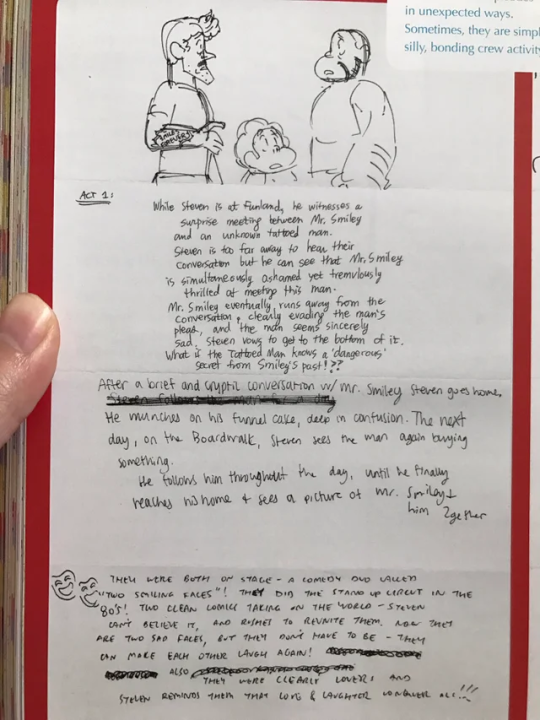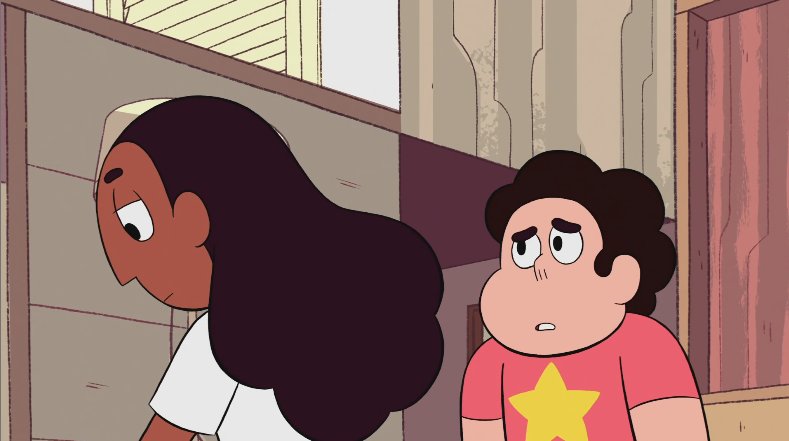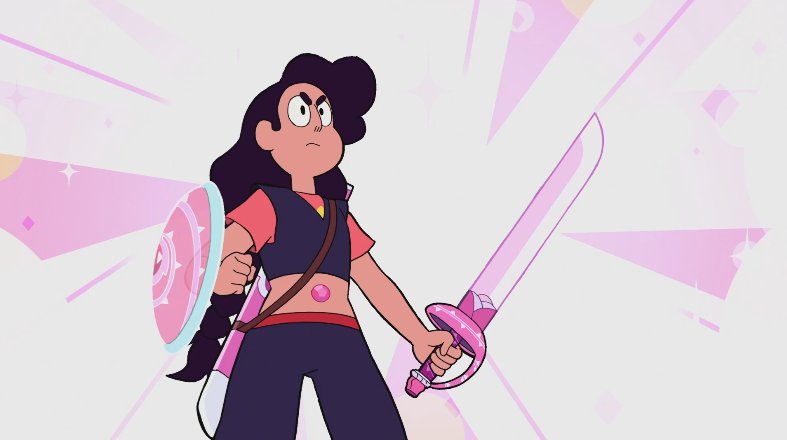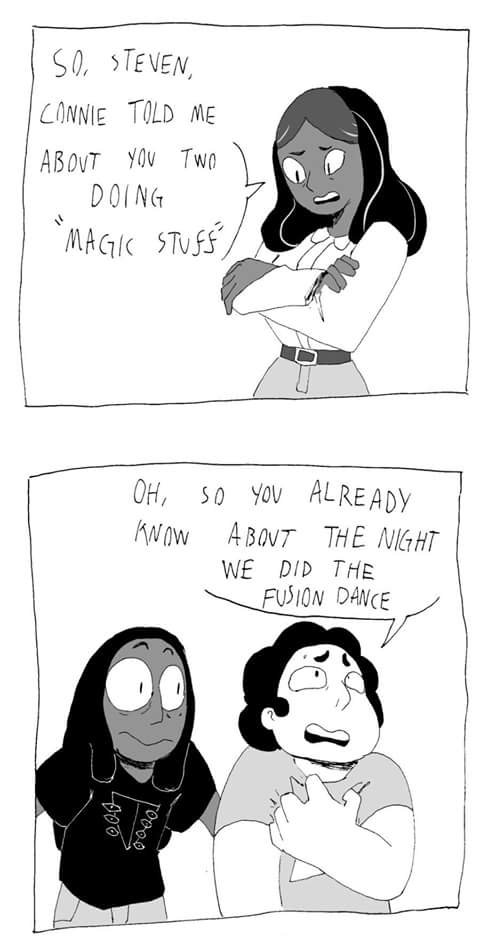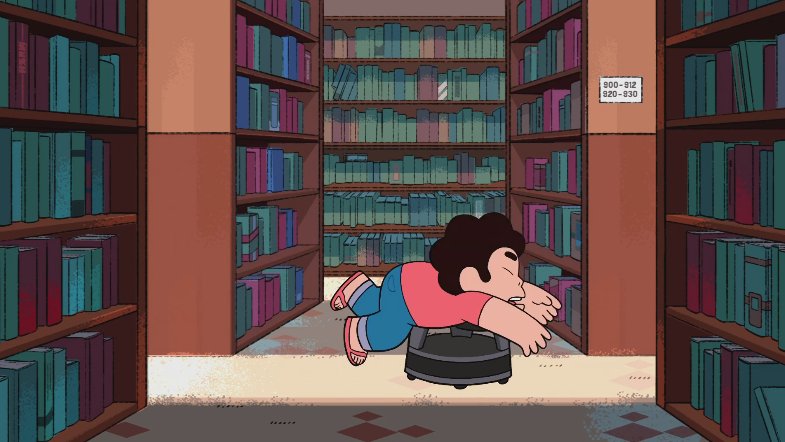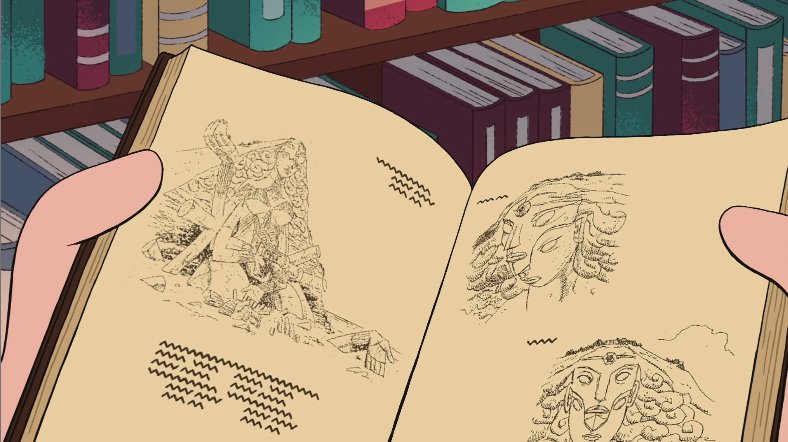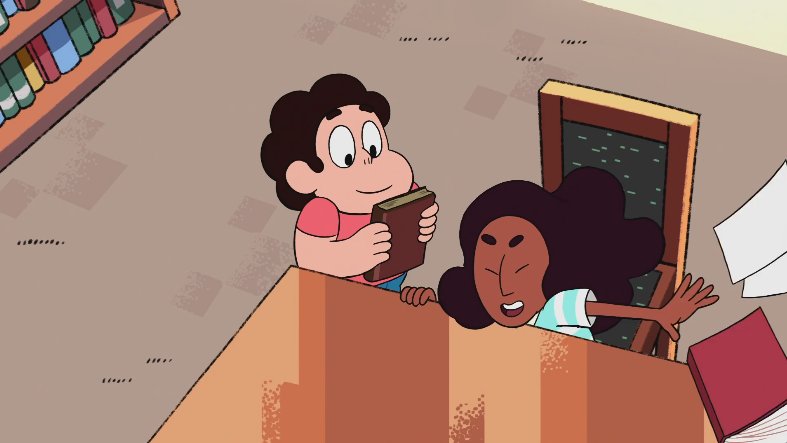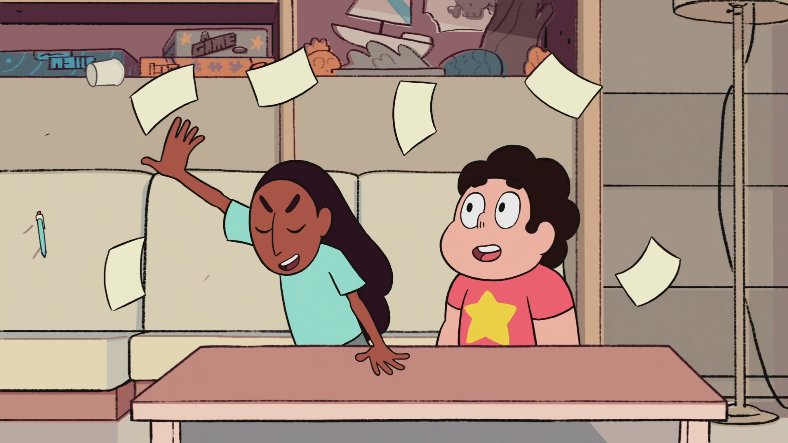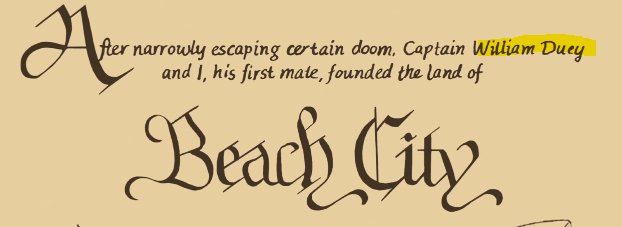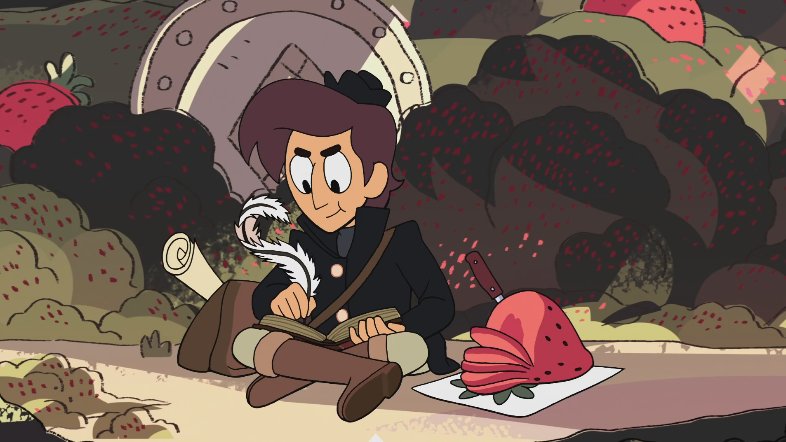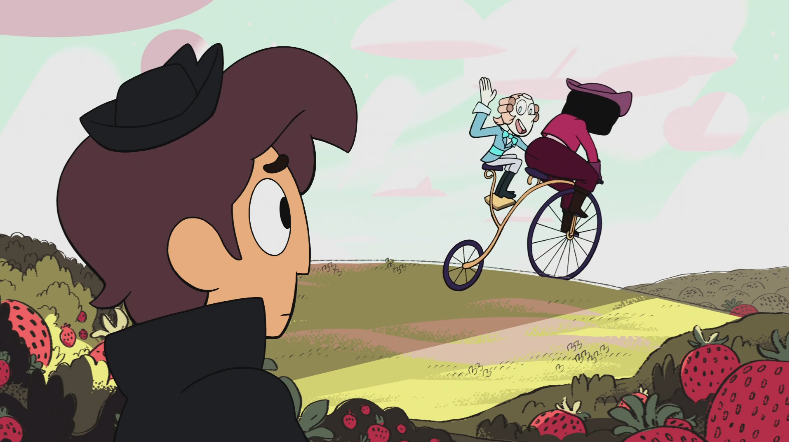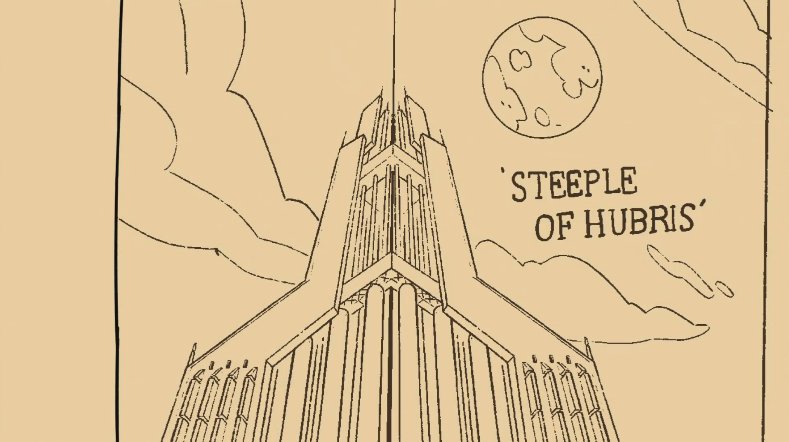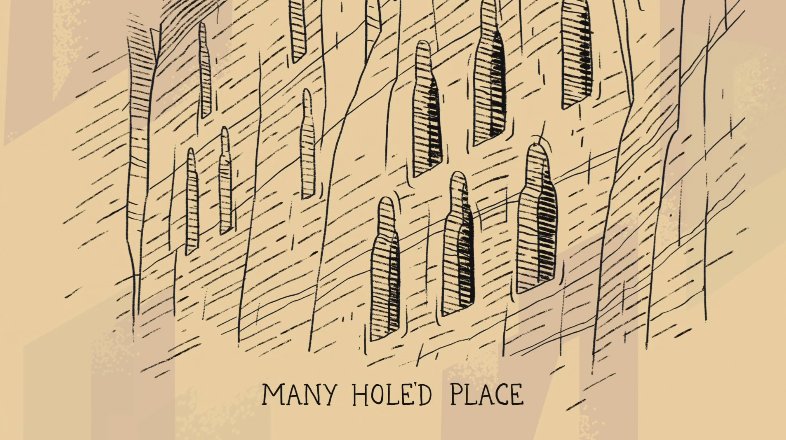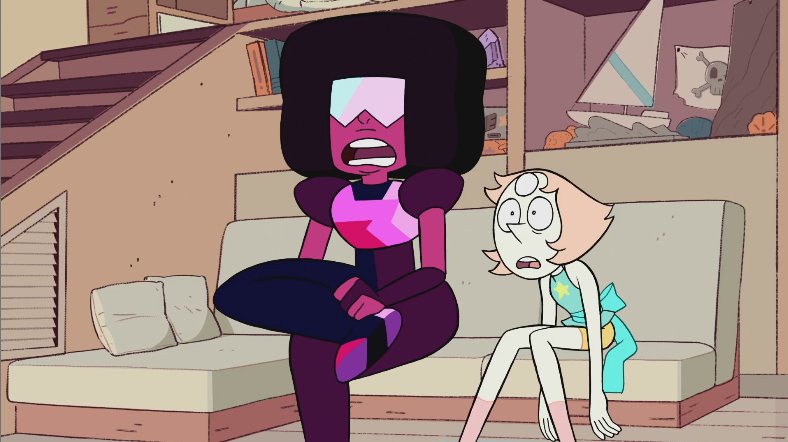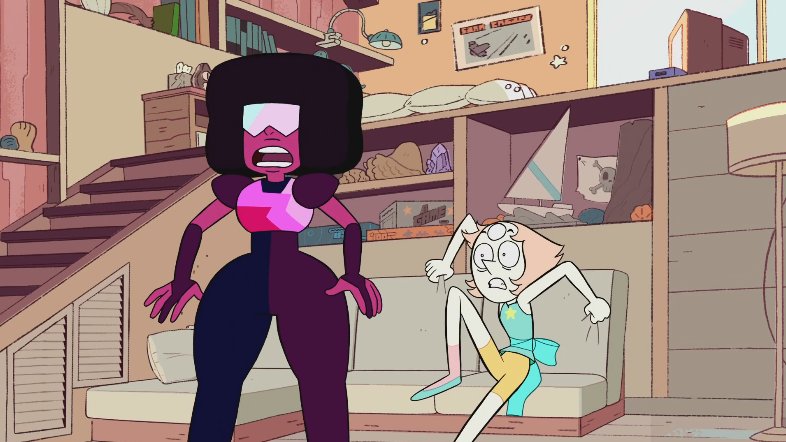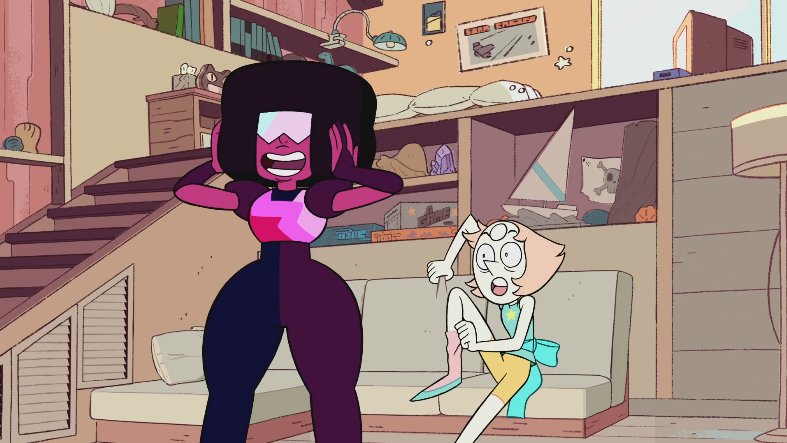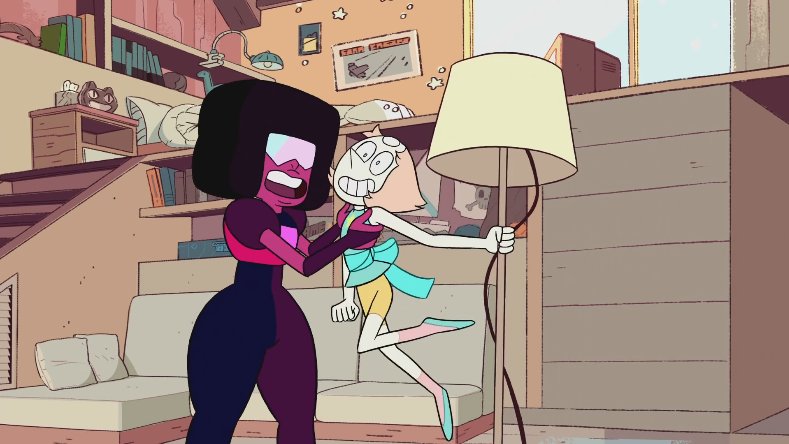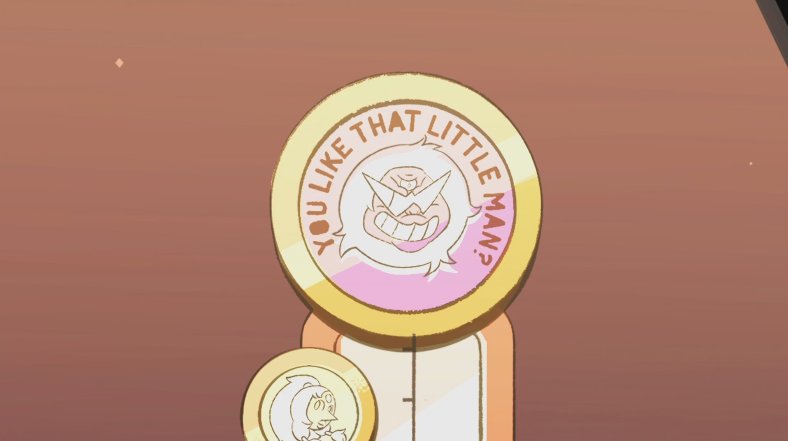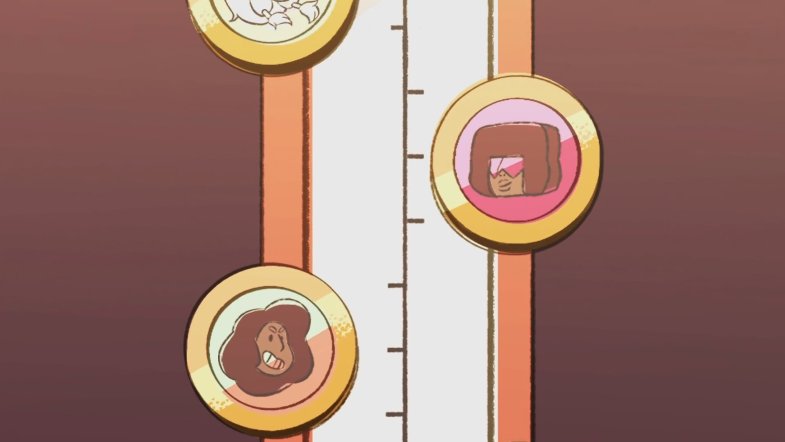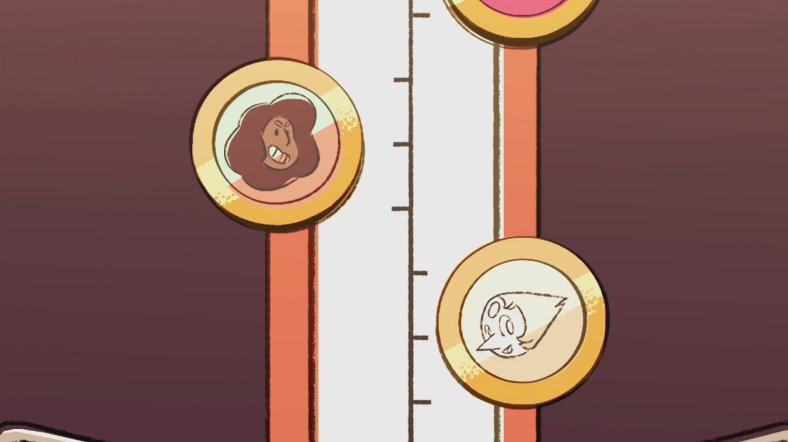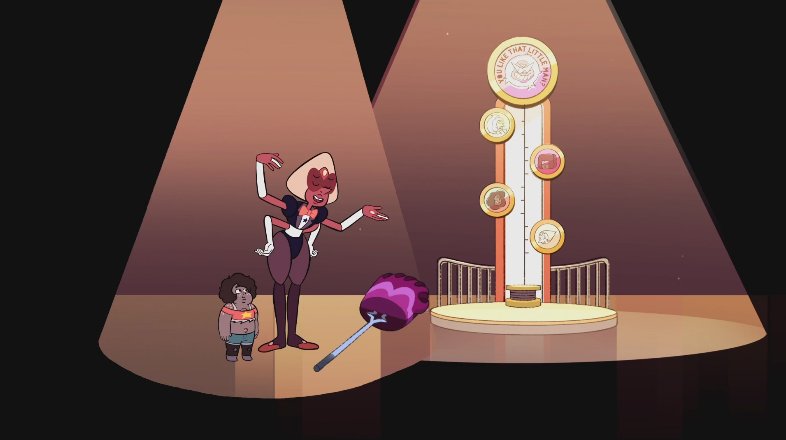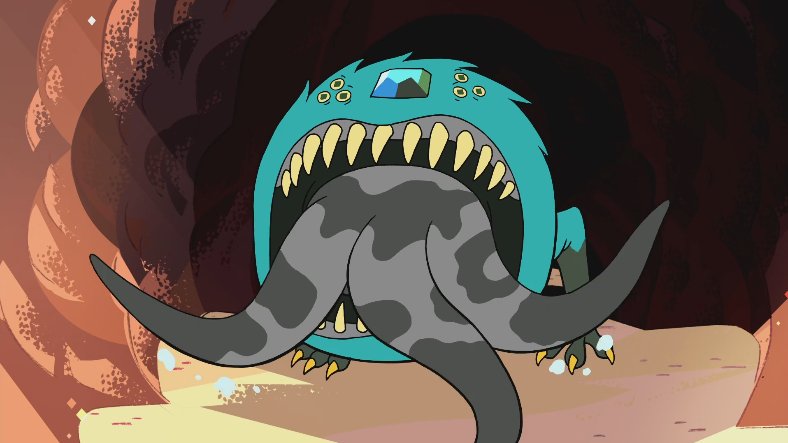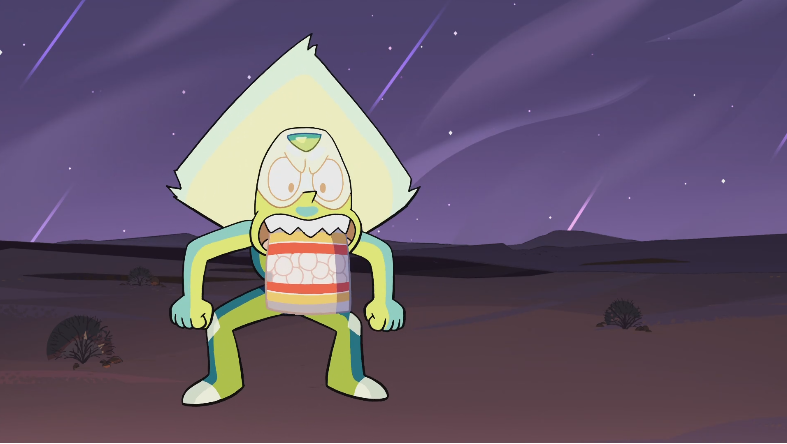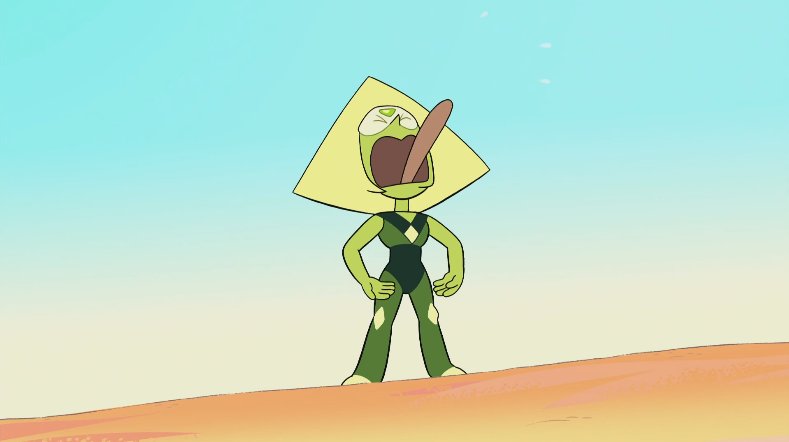Steven Universe: Unwinding Season 4—Episode 6: Last One Out of Beach City
“Last One Out of Beach City” is a standout episode, and a moment of intense growth for Pearl, but from Steven’s perspective it’s also disconcerting. Pearl, for all her drama, has always been the stable domestic presence. Closest thing to a mom Steven has ever had.
And here, he can’t even have a quiet night in to play a puzzle. It’s like a weird dream, how Pearl decides to act here. And Steven gets dragged along the whole time, not entirely willingly, getting more unsettled as the night goes on.
It’s not exactly a bad experience, and it’s good for Pearl and exciting and all, so he’s enthusiastic as well, but it’s a weird night that can only contribute to the growing unease. As signaled by the new ending music that appears in “Mindful Education.”
A troubling thing in hindsight is how much Steven keeps buried and unexamined. It builds up.
The whole Holo-Pearl as Depression thing in “Steven the Sword Fighter” is about as direct as the show gets in terms of discussing unreliable parenting, though it arcs around to touch the topic whenever she has one of her breaks.
In lines like the “almost let me die” thing, there’s a repressed mania going on there while he struggles to remain optimistic and supportive, the way he figures he’s expected to be. But the fact he’s even saying it, and the tone of his voice, and the look on his face… yikes.
So many of the show’s best comedic lines become much less funny when you start to think about them closely.
“Ha ha ha… wait… uh, Jesus Christ. Um.”
But then, I guess that’s how comedy is supposed to work.
There tend to be several levels of weight and implication to most of the humor in this show. But then you take a step away from the immediate scenario and its rhythms and you realize, you know, that’s actually pretty disturbing, there.
Unfiltered Truth Drop is kind of the default joke model on this show.
Going back to the early seasons with better knowledge of the characters’ psychologies and dynamics and backgrounds and personal traumas, and lots of the humor lands very differently. It’s all on-point but it’s biting and uncomfortable where it used to just seem like banter.
In the extended intro, I always thought Steven’s line in the bridge section was a bit… off, and potentially troublesome. With the arc of the series clear now,, looks like that was the intention, though? Actually, they’re all kind of… not healthy.
There are a few issues. Steven’s a sweet kid, and he takes everyone else’s stuff on board and doesn’t know how to process his own feelings about it. But he’s been handed over to a bunch of psychologically fucked space aliens with no social skills, who can’t see what’s happening.
One of the only times the show gets overt about what’s going on with him, prior to his slow-motion meltdown over series four, is in “Joy Ride,” where the Cool Kids treat him like someone his own age for once, and he feels little enough responsibility to slightly open up to them.
Even then he’s not sure what he’s saying, but what little he does admit to, and in the offhanded way he does it… pretty much appalls them.
Anyway, about the music—when “Mindful Education” aired, the new ending did not go unnoticed. The contemporary comment here says it all.
That unease continues through all of seasons four and five, as Steven’s problems grow. It’s only in the last few episodes, once he reaches Homeworld, that the music lays down its cards and reveals what it’s actually doing.
Anyway. Though far from an original observation, Pearl as Recovering Disaster Gay is one of the best things in the show so far. Somehow I never noticed that was the Big Donut they stopped at. I thought it was just some random gas station along the way.
But. Yeah, of course it’s a fucking doughnut shop. Because…
It’s impossible to overstate my appreciation for the background artists.
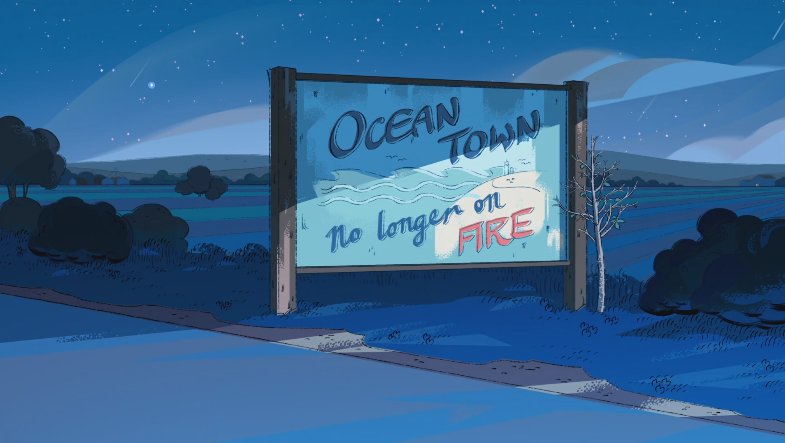
And yeah, Rebecca Sugar confirmed that Pearl’s new regeneration is in response to her experiences in this episode. This is where her self-concept has been sitting ever since, more or less.
